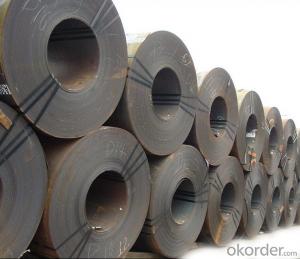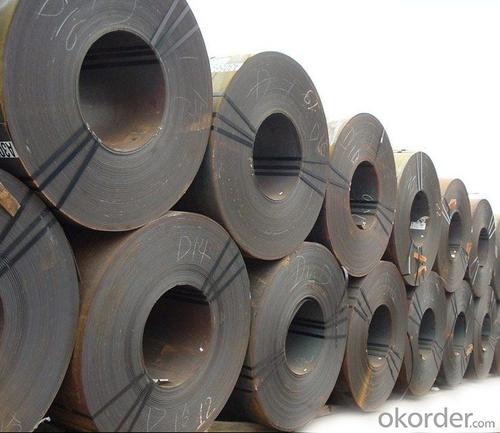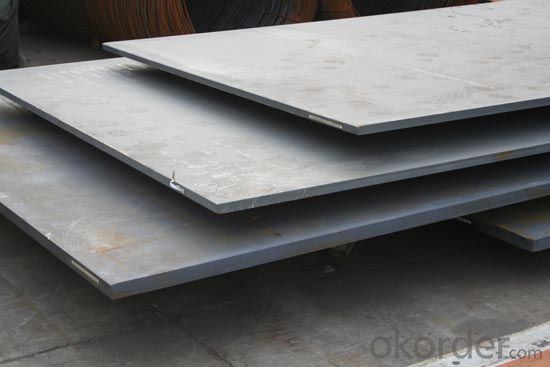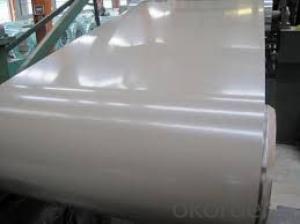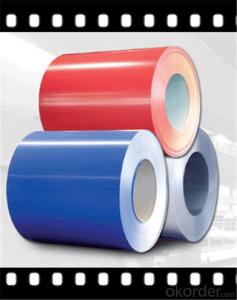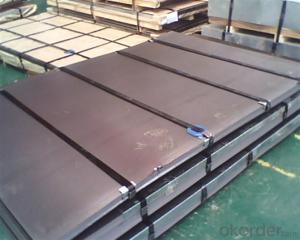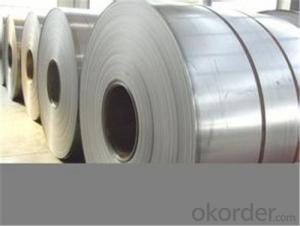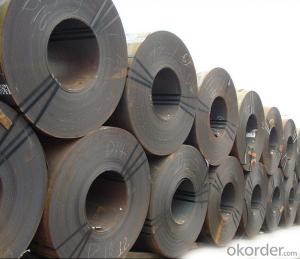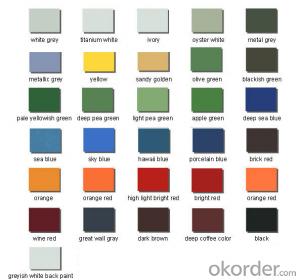Hot Rolled Steel Coils/Sheets from China CNBM,A36
- Loading Port:
- China main port
- Payment Terms:
- TT OR LC
- Min Order Qty:
- 25 m.t.
- Supply Capability:
- 100000 m.t./month
OKorder Service Pledge
OKorder Financial Service
You Might Also Like
Product Description:
Standard Hot Rolled Steel Sheets/Coils
OKorder is offering high quality Standard Hot Rolled Steel. Our supplier is a world-class manufacturer of steel, with our products utilized the world over. OKorder annually supplies products to European, North American and Asian markets. We provide quotations within 24 hours of receiving an inquiry and guarantee competitive prices.
Product Applications:
Standard Hot Rolled Steel are used for floor board, factory stair boards, deck board, car boards ,staircases, lorry beds, elevator floors, general fabrication.
Fridge ,air conditioner, washing machine and household appliances, automobile,steel furniture, drum, motorcycles, fitting apparatuses, furniturem,builings electronic telecoms and gas- conveyance projects.
Product Advantages:
OKorder's Hot rolled steel are durable, strong, and resist corrosion.
Main Product Features:
· Premium quality
· Prompt delivery & seaworthy packing (7-10 days after receiving deposit)
· Corrosion resistance
· Can be recycled and reused
· Mill test certification
· Professional Service
· Competitive pricing
Product Specifications:
Brand: HBIS,Shagang,Ansteel,Baosteel
Grade: Q195 Q225 Q235 Q345 A36 S235jr St37-2 SS400
Thickness: 1.2mm and above
Width: 750mm-2000mm
FAQ:
1: Why buy Materials & Equipment from OKorder.com?
A1: All products offered byOKorder.com are carefully selected from China's most reliable manufacturing enterprises. Through its ISO certifications, OKorder.com adheres to the highest standards and a commitment to supply chain safety and customer satisfaction.
Q2: How do we guarantee the quality of our products?
A2: We have established an advanced quality management system which conducts strict quality tests at every step, from raw materials to the final product. At the same time, we provide extensive follow-up service assurances as required.
Q3: How soon can we receive the product after purchase?
A3: Within three days of placing an order, we will begin production. The specific shipping date is dependent upon international and government factors, but is typically 7 to 10 workdays.
Q4: What makes stainless steel stainless?
A4: Stainless steel must contain at least 10.5 % chromium. It is this element that reacts with the oxygen in the air to form a complex chrome-oxide surface layer that is invisible but strong enough to prevent further oxygen from "staining" (rusting) the surface. Higher levels of chromium and the addition of other alloying elements such as nickel and molybdenum enhance this surface layer and improve the corrosion resistance of the stainless material.
Q5: Can stainless steel rust?
A5: Stainless does not "rust" as you think of regular steel rusting with a red oxide on the surface that flakes off. If you see red rust it is probably due to some iron particles that have contaminated the surface of the stainless steel and it is these iron particles that are rusting. Look at the source of the rusting and see if you can remove it from the surface.
Images:
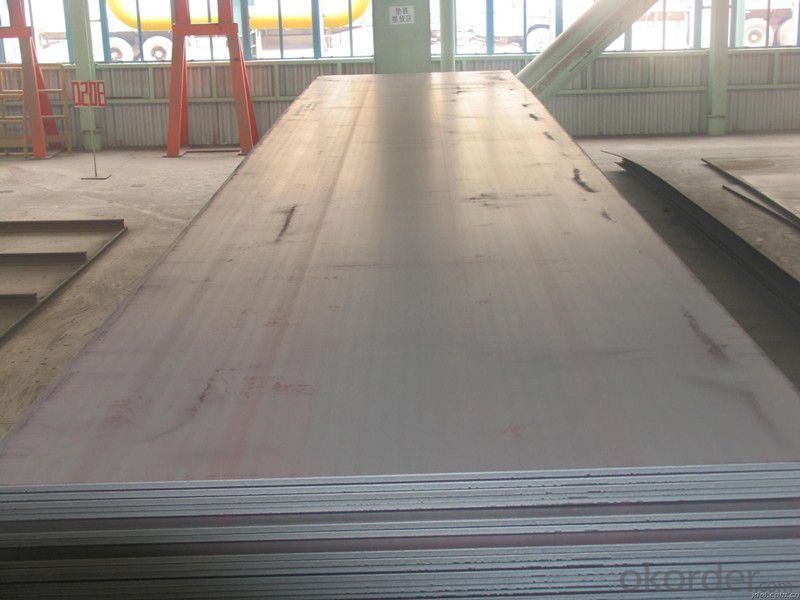
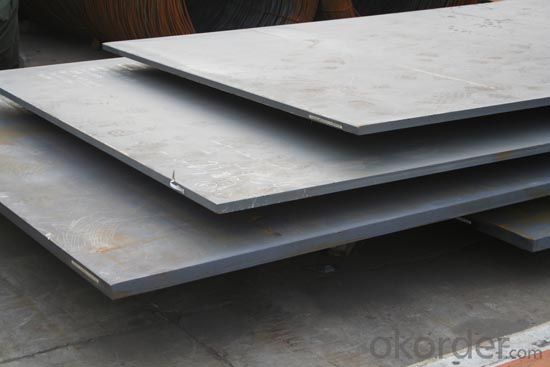
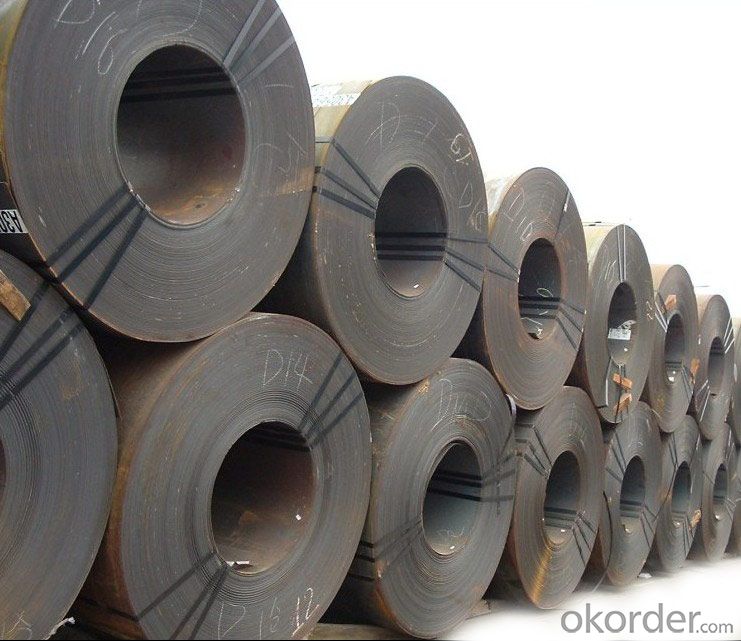
- Q: i have a sword and some knives that have this grade steel. so is it a high grade or low grade? and how can i tell the differance between a high grade and a low grade?
- I own a claymore made of 440 stainless steel, I cut a small tree in half. I was surprised, I mean I had always heard it broke very easily, but tell that to the tree. In other words it is a strong metal, but I don't sugest you tempt fate and try to break it because you will. As far as high grade the higher the grade the better the blade looks. If your looking for something to swing around, listen up Damascus is a good steel and Superalloys are probably the best. Take it from me, i'm an expert in using a sword and you'll only get hurt. Most of the time when you swing a sword you wound yourself and don't know it. When you swing the hilt of the sword also presents a problem, it can wound you too. Infact if you can't live with being cut up all the time don't pick up a sword. I cut my hands all the time and i'm a professional so you would probably kill yourself trying. Of course I do use heavy swords, but you can still hurt yourself with a light sword. So don't attempt anything stupid for your sake.
- Q: How are steel coils used in the production of storage shelves?
- Steel coils are an essential component in the production of storage shelves. These coils are typically made from carbon steel and undergo a series of processes to shape them into the desired form. The first step in using steel coils for storage shelves is to unroll and flatten the coil. This is done using a machine called a decoiler, which unwinds the coil and feeds it through a series of rollers to flatten the metal. Once the coil is flattened, it is ready for further processing. Next, the flattened steel is cut into specific lengths using a shearing machine or a saw. These cut pieces are then bent and shaped into the appropriate dimensions for the storage shelves. This bending process is typically done using a press brake or a roll former, which applies pressure to the metal to create the desired shape. Once the steel has been shaped into the proper dimensions, it is welded together to form the structure of the storage shelf. This welding process ensures that the shelves are strong and durable, capable of supporting heavy loads. After the welding is complete, the storage shelves may undergo additional processes such as surface treatment or coating to enhance their appearance and protect them from corrosion. These treatments can include processes like powder coating, galvanization, or painting. Overall, steel coils play a crucial role in the production of storage shelves. They provide the raw material from which the shelves are made, and their versatility allows for a wide range of shapes and sizes to be created. The strength and durability of steel make it an ideal choice for storage shelves, ensuring that they can withstand heavy loads and provide long-lasting storage solutions.
- Q: I've heard on some 1911 forums that the slides of Armscor guns are now extruded. What is extruded steel? How is it made? Are they strong (4140carbon steel was used in the process).
- Extrusion okorder /
- Q: What are the dimensions of a steel coil?
- The dimensions of a steel coil can vary depending on several factors such as the intended use, manufacturer specifications, and industry standards. However, common dimensions for steel coils typically include variations in width, thickness, and weight.
- Q: How are steel coils used in the production of steel drums?
- Steel coils are used in the production of steel drums by being cut into sheets and then rolled into cylindrical shapes, which form the body of the drum. The coils provide the necessary strength and durability required for the drums to hold and transport various materials safely.
- Q: I just got my Daewoo K2 in 5.56 and i know they are tough and reliable but how well will it fair with steel rounds. I know shooting brass is better for any gun but what kind of extra wear and tear would i be looking at with shooting steel. Also what about reloading steel. Is it recomended. I would not even be asking this but steel is far cheaper than brass ammo, and i need to save some money.
- You can't reload steel cases. I don't really know, but you just can't. If a mild steel case is harder than the chamber and bolt of your firearm, you should have got a better firearm.
- Q: Can steel coils be coated with anti-counterfeit materials?
- Yes, steel coils can be coated with anti-counterfeit materials. These materials can include specialized coatings, holograms, unique serial numbers, or other security features that help prevent counterfeiting and ensure the authenticity of the steel coils.
- Q: What is the maximum temperature steel coils can withstand?
- The maximum temperature that steel coils can withstand varies depending on the specific grade and type of steel being used. Steel is known for its high heat resistance and can typically withstand temperatures ranging from 550°C to 1,100°C (1,022°F to 2,012°F), depending on the grade. However, it is important to note that prolonged exposure to high temperatures can cause steel to lose its structural integrity and result in permanent deformation or even failure. Therefore, it is crucial to adhere to the manufacturer's guidelines and specifications when determining the maximum temperature that steel coils can withstand in specific applications.
- Q: What is the use for spring steel that take advantage of its unique properties?
- Uses Of Spring Steel
- Q: I want a stainless steel refrigerator that doesn't leave fingerprints and I'm looking on Lowe's website but they have too many choices and i don't have a clue what they are. The have stainless, stainless look, stainless steel, monochromatic satina, and monochromatic stainless steel. Can anyone tell me what the heck those mean? lol
- Stainless Look vs Stainless in refrigerators usually refers to true Stainless Steel versus Satina. There's pluses and minuses both ways actually. With true Stainless, you have the exact match to the rest of the kitchen (because Satina is only used on refrigeration), but it is more prone to fingerprints, and is not magnetic. The Satina finish has a good look when not directly near a Stainless appliance, and does not show fingerprints and will accept magnets, but is not an exact match to stainless. My usual recommendation is that if you have a kitchen full of Stainless products, stick with the true Stainless Steel. If the refrigerator is more isolated, or is the only thing you want to have a Stainless look, you may want to consider Satina. If you put a lot of magnets on the refrigerator, I'd also recommend to go Satina. And since you don't want fingerprints, the Satina steel might come to your liking.
Send your message to us
Hot Rolled Steel Coils/Sheets from China CNBM,A36
- Loading Port:
- China main port
- Payment Terms:
- TT OR LC
- Min Order Qty:
- 25 m.t.
- Supply Capability:
- 100000 m.t./month
OKorder Service Pledge
OKorder Financial Service
Similar products
Hot products
Hot Searches
Related keywords
